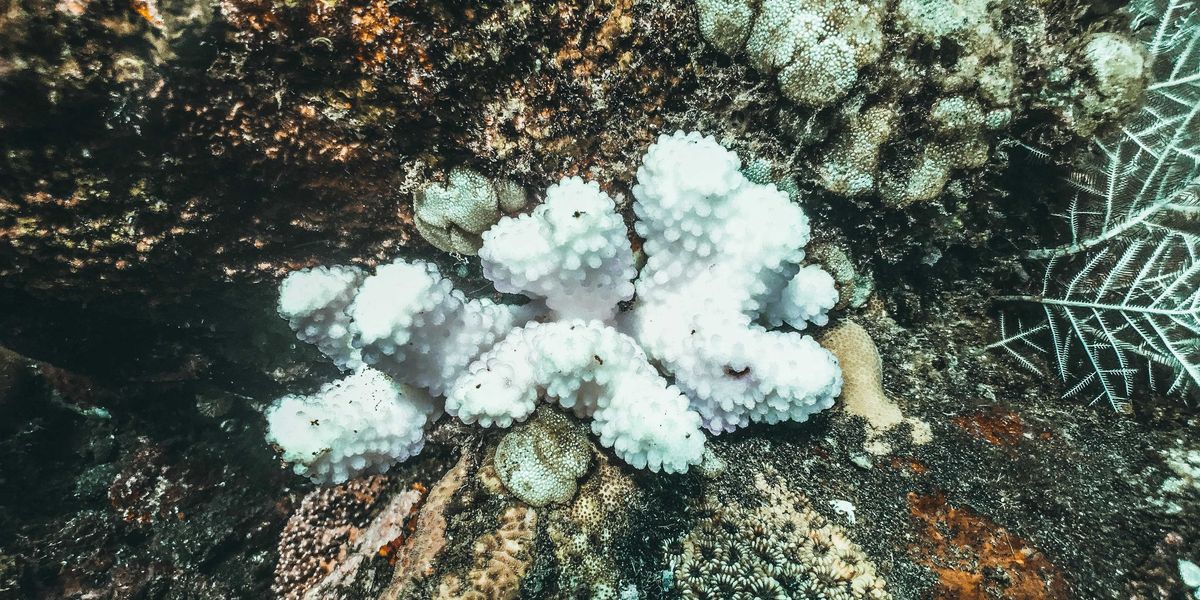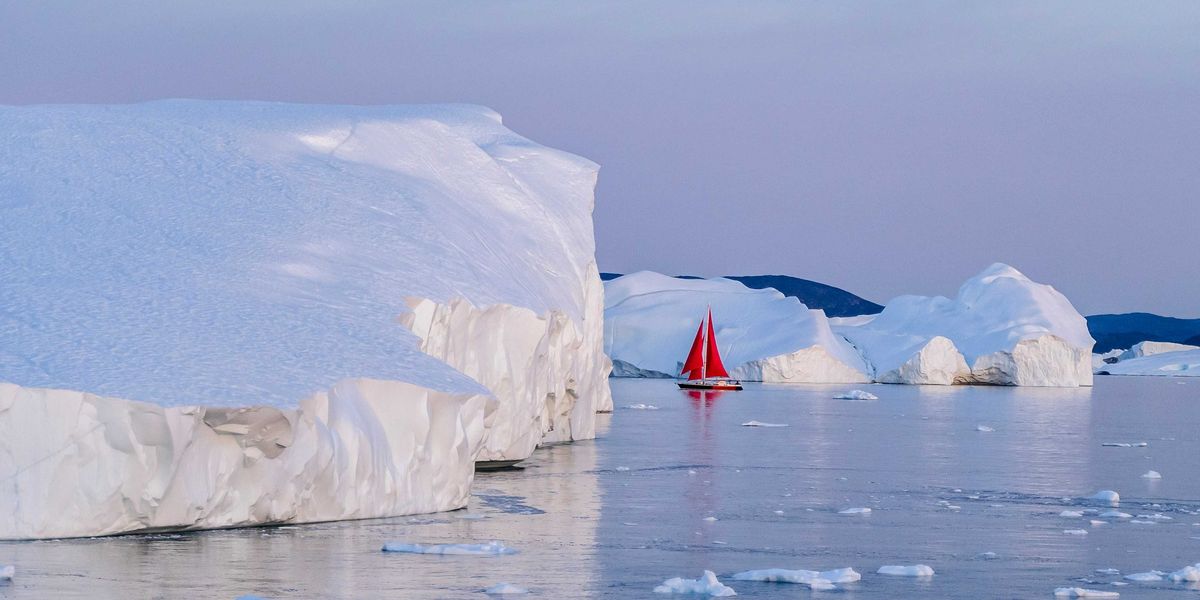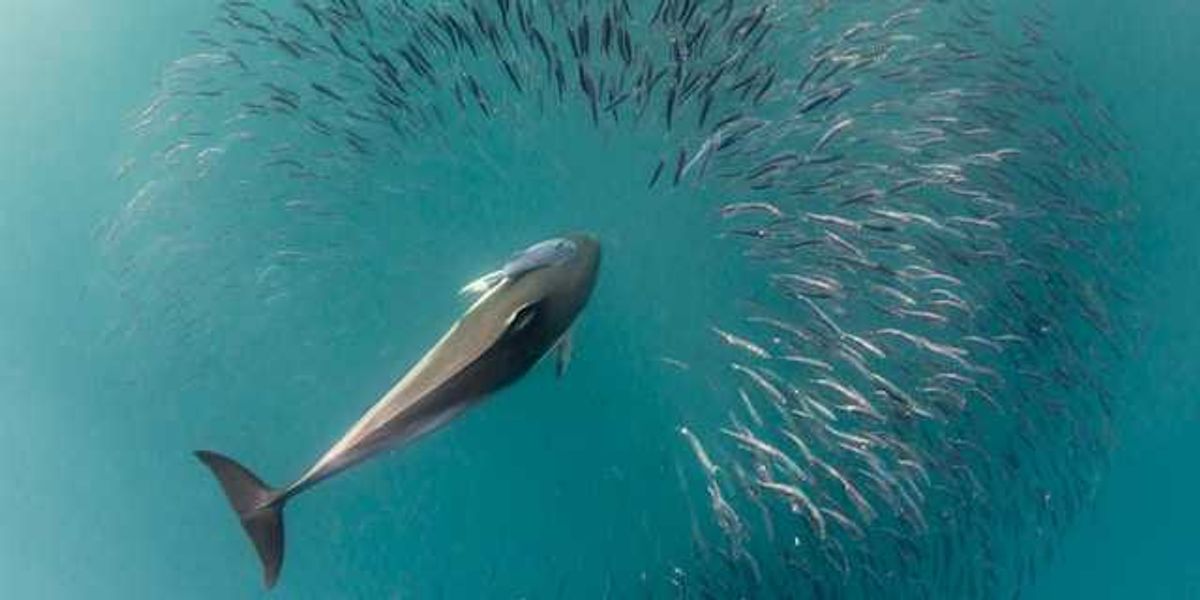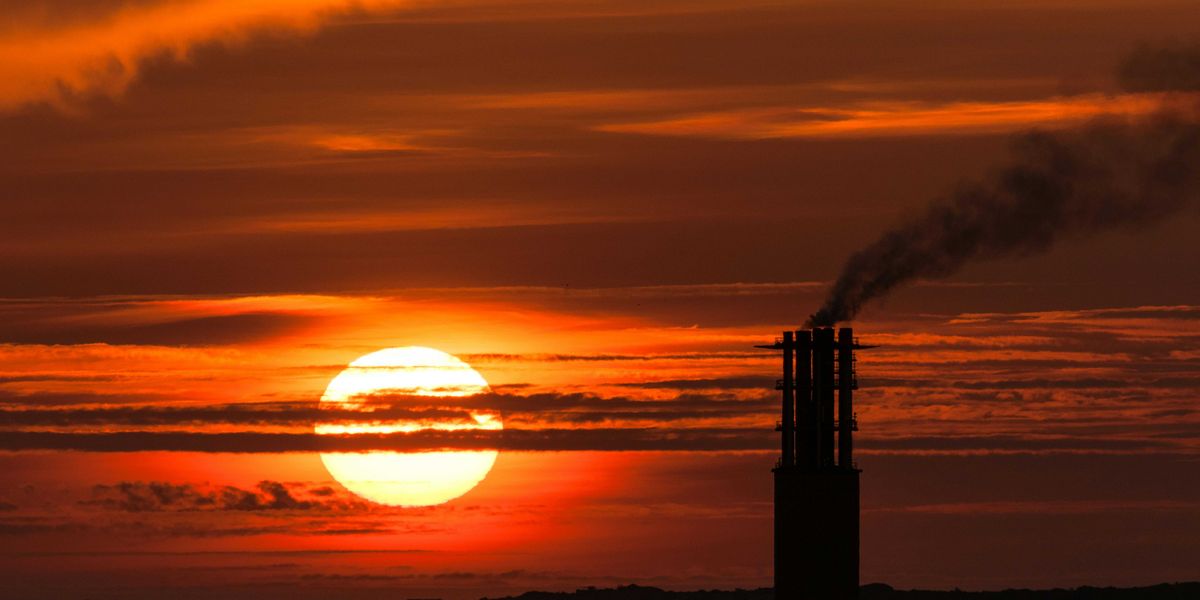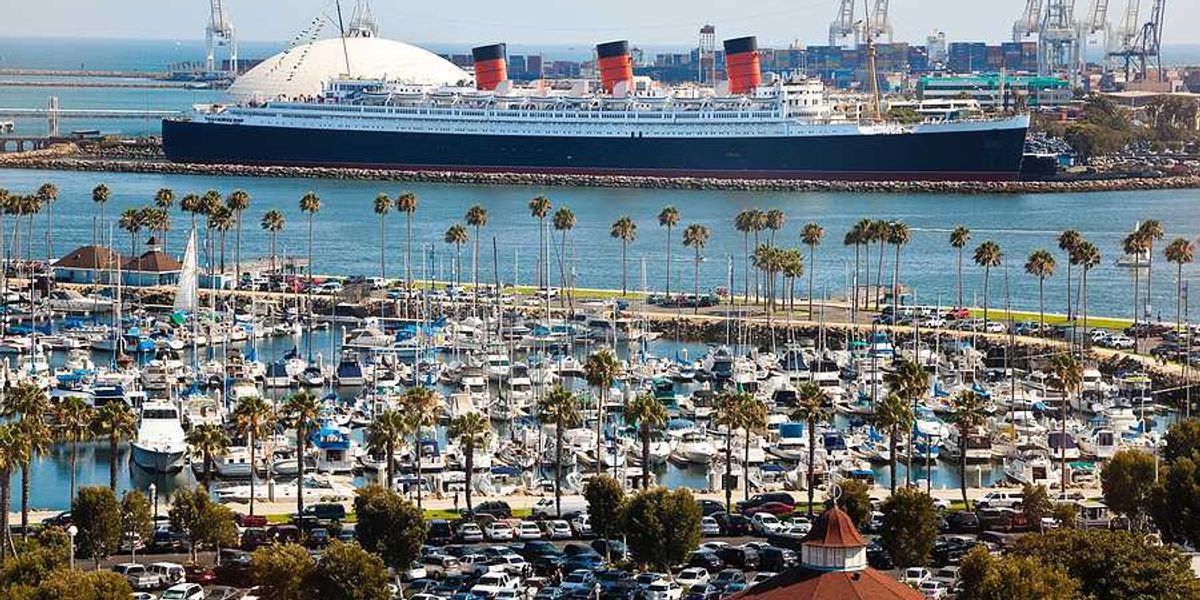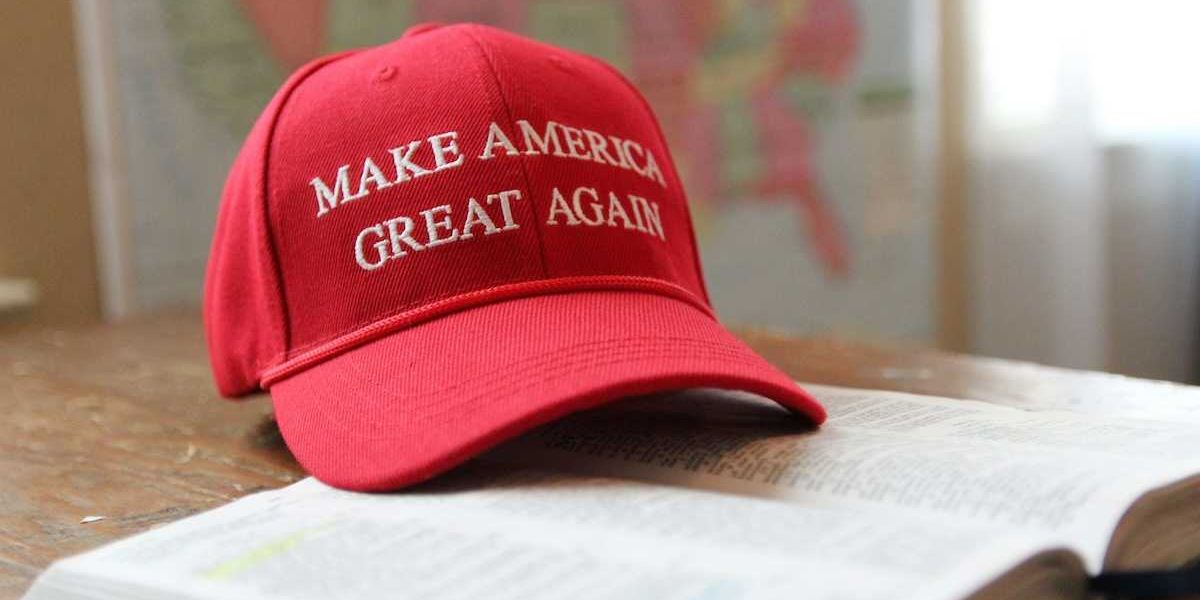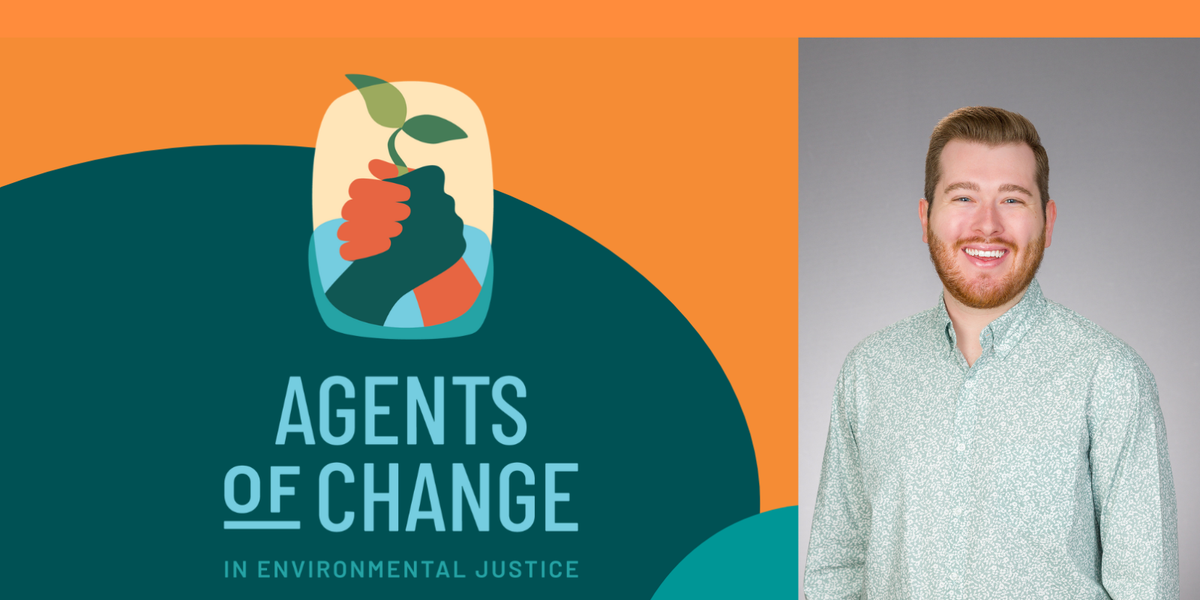
LISTEN: Brandon Rothrock on the environment and queer identities
"It's important to make queer and LGBTQ+ people central to research and policies and not add them in as an afterthought."
Brandon Rothrock joins the Agents of Change in Environmental Justice podcast to discuss the intersection of the environment and LGBTQ+ identities, and emerging climate and health issues in Appalachia.
Rothrock, a current fellow and a first-year geography Ph.D. student and EmPOWERment NSF Research Trainee at The Ohio State University, also talks about how geography informs who we are.
The Agents of Change in Environmental Justice podcast is a biweekly podcast featuring the stories and big ideas from past and present fellows, as well as others in the field. You can see all of the past episodes here.
Listen below to our discussion with Rothrock and subscribe to the podcast at iTunes or Spotify.
Transcript
Brian Bienkowski
How are you doing?
Brandon Rothrock
Good. How are you?
Brian Bienkowski
I'm doing wonderful. And where are you today?
Brandon Rothrock
I am in Columbus, Ohio. It is very, very warm here today. I'm sure the same in Michigan.
Brian Bienkowski
Yes, we are. We are talking during a heatwave. I think the next two days are supposed to be so hot. I don't have air conditioning either. We live in the Upper Peninsula. So it's usually cold enough to not need it. But I'm already a little concerned about it.
Brandon Rothrock
Yeah. I am fortunate, I was talking to my... I live in sort of a half a house and my neighbor. A few months ago, our landlord wanted to cut down this really big tree in our front yard. And luckily they didn't because for some reason, some of the companies didn't want to come out because of the power lines being too close and things like that. So they didn't cut it down. So I'm so thankful that it's still up today, because it's keeping my house so cold compared to all of my other neighbors who don't have trees in their yard.
Brian Bienkowski
It's amazing how much of a difference it makes we have a massive birch tree. I'm looking at it right now in the front yard. And I can totally relate, it makes such a huge difference to have to have a canopy over your house like that. So I'm glad that utilities or whomever was was against
Brandon Rothrock
Super fortunate.
Brian Bienkowski
So you are not originally from there, although that's where you're doing your work now. But I'd like to start at the beginning. So tell me about growing up in Northwest New Jersey and from what I understand, I think of New Jersey as very Hoboken and very city. But it sounds like you were in a more rural area. So tell me about growing up there.
Brandon Rothrock
Yeah, for sure. So I think you hit the nail on the head that most people assume New Jersey is sort of a concrete jungle, an extension of New York City, which is true in many areas of New Jersey, but not particularly where I grew up. I grew up in a really small community about two miles from the Delaware River and the Pennsylvania border. And my town is very sort of suburban, surrounded by tons of cornfields My house is just surrounded by fields on all sides, you know, used to have farm equipment clogging up some of the roads going to and from school some days. Yeah, things like that. And I would say my neighborhood was quite tight knit, it was sort of a everyone knows everyone type of atmosphere. And there was a lot of things to do outdoor wise. So we had a reservoir near my house. So we would go walking around pretty often. And I would say over time, especially during the pandemic, a lot of people have moved sort of further west from the city into my area. So the population has increased like pretty significantly. And with that, you know comes with feelings of sort of outsiders are moving in, growing pains with new housing going up and things like that. So I feel like it's an interesting time now looking back at where I grew up and how it's sort of transforming as well.
Brian Bienkowski
Most people you talk to have this similar experience of thinking of a place where they're there from there, they live there now that it's changing and people are moving in and I'm just wondering, where are the places where no one lives anymore? because it seems like everywhere is having this influx influx of people or were you fascinated by? Did you want to move to like a big city when you were there? Or were you pretty comfortable in that kind of environment? Um,
Brandon Rothrock
I would say I felt pretty comfortable. I would say we live about an hour and 15 minutes to the north of Philadelphia, and then like an hour and 15 minutes to the east, or to the west of New York. So I felt like it was a really good sweet spot, sort of like still out in the open, not too congested, but also still able to get to like Newark Airport in 40 minutes or something. I thought it was a good a good ways away.
Brian Bienkowski
Yeah, the East Coast is so so interconnected. And everything's so close that you're never really that far from for anywhere.
Brandon Rothrock
sure. Yeah. Yeah, I'm still not used to sort of driving all the way through Pennsylvania to Ohio, because you, I guess you don't think about Pennsylvania being so long, but it really is. And the distance between some of the cities and Pennsylvania, it's just very interesting to me.
Brian Bienkowski
So I won't tell you what people from Michigan say about your state of Ohio, because we say the same. It's very similar that oh, gosh, we have to drive through Ohio now. And it feels so long to get to here. But so you've said a couple of things shaped you in, you know, in your environmental connection and pursuit of justice that kind of came about later in your career. One was a hearing disability that that you have, and then another one was coming out as a gay man, and what was a pretty conservative community. So I was wonder if you could talk about these experiences, how they are connected to your work and activism on the Health and Environment front?
Brandon Rothrock
Yeah, definitely. So I would say on the hearing front, so at age two, I found that I had single sided deafness, or that I cannot hear at all out of my right ear. And I sort of still struggle with speaking about it at times, because I feel like for me, I'm in a sort of in-between space. You know, at times feeling sort of like the weight of my disability, particularly in like social settings, having sensory overload, sometimes, also, just not being able to hear I know, I remember growing up, you know, the game telephone where you whispering each other's ears, that was always sort of like a sore spot for me, because I was like, oh, people are gonna realize that I can't actually hear what they're saying on my right side. And so yeah, just like kind of weird or like going around social situations like that. But on the other hand, I feel fortunate that I have full hearing in my left ear, and that I haven't had to have cochlear implants or implants or other surgeries like other people who might have hearing disabilities have or struggle with. But again, it sort of goes back to a feeling of sometimes not feeling disabled enough. And I think that sort of drives how I think about the complexities of how people interact with the environment. But as time has gone on, I feel like my hearing disability has made me sort of more aware of my surroundings, and whether it be you know, a restaurant or out in nature, just thinking about how different people engage with their surroundings. And also thinking about accessibility to nature as well off of that. So thinking about how certain people might not be able to go in specific nature-related spaces, like hiking spaces and things like that. And I would say, then, simultaneously, going back to feeling sort of in-between growing up, was slowly realizing that I wasn't straight as well. And I feel like as you're, you know, growing up in a small, sort of conservative community, there's sort of this one path or a specific path that you're supposed to be on and sort of, you know, you're not supposed to stray from that path. And I think that also had like a particular weight to it growing up as well, just, I feel like I hadn't fully recognized my sexuality fully until I went to college where I felt like I was more able to experience you know, different people, different surroundings outside of where I grew up. And this isn't to say that there weren't other people who were out in high school at my high school specifically. But I felt like at the time, I was still trying to figure out what how I was or who I was, and sort of navigating that more conservative environment. And I would say specifically, as well, my sexuality is definitely a big driver of the work that I do, mostly because queer people are socially marginalized in everyday spaces. And this carries over to environmental spaces, or just spaces where queer people are sort of not allowed to be themselves. And I think on the health front, as well, particularly in the context of climate change. I think there really needs to be more work at the intersection of sexuality and disability and climate change.
Brian Bienkowski
Thanks so much for both speaking about that and bringing up that last point, because I think that's, you know, we're gonna get into some of that today, because that's what a lot of your work has been focused on. But before we, before we do that, I did want to say whenever I think of kids, you mentioned being a kid and feeling less than and I just think, don't you wish you could just reach kids and be like, it's not always you're not always gonna feel like this, Oh, my God, my heart, just thinking about people who feel different, or that they're always going to struggle, you know, it's just like, oh, gosh, you're gonna be okay. It's gonna be so much better when you get older
Brandon Rothrock
For sure. Yeah, I would say it was definitely kind of odd, you know, telling my friends or something when I would have to leave school early to get an audiologist appointment or something, you know, so I guess not a lot of people go and get audiology appointments, unless there's something you know that you're monitoring with your hearing. And so yeah, it was just very interesting. So a lot of time at the ear, nose and throat doctor growing up. So.
Brian Bienkowski
Well, if you're anything like me, I just wanted to not be noticed. I just didn't want to be cool or not cool. I just wanted to be a wallflower. So for people like that, anything that draws attention to you as as like, "ugh, I don't think I want that." So before we get into some of that work that we mentioned, what is a moment or event that has helped shape your identity up to this point?
Brandon Rothrock
Yeah. So I feel like, I don't think I can pinpoint a particular moment or event because I feel that my identity or sort of coming to terms of my identity has not been a linear journey. I feel like there's times you know, where I thought to myself, "Okay, maybe I, if I'm in a new setting, I won't tell people about my sexuality, I won't tell people that I have a disability." And I feel like I have sort of a privilege in that sense, where sort of my disability is not visible, or in certain spaces as well, with my sexuality, you know, you can sort of hide it in a way. You know, maybe I could just blend in in the background, like you were mentioning. But I guess, I feel like when I take a step back, particularly thinking about my junior year in college, like, I guess I really realized that I had a support system of friends and family who, you know, would love and support me as I expected them to and just sort of took a leap with telling people about my sexuality. But I think it's important to say as well that a lot of LGBTQ people in the US are not as fortunate to have the support system in the way that I have. And there's sort of a particular danger about everyday life and coming out that I don't think many straight people sort of understand the gravity of at times. Particularly for queer people, one minute, you could be, you know, living at home having a seemingly comfortable life. And the next minute, you're sort of out on the street because your friends or family have not accepted you. So definitely thinking about that as my identity as sort of moved across different spaces and time as well.
Brian Bienkowski
So I want to center this, the idea of looking at kind of the environmental LGBTQ+ intersection and before we get to some of the specific research that you're and the work that you're doing, can you talk broadly about environmental impacts and the state of research on the LGBTQ+ community?
Brandon Rothrock
Yeah, sure. So I would say a majority of work at the intersection of environmental impacts and the LGBTQIA+ community focuses sort of on understanding vulnerability as it relates to disaster preparedness and response. So Well, I'm sure we'll get into it a little later, but some of my colleagues are out for sustainability. Vanessa Raddatz and Leo Goldsmith co-wrote a paper called "Queer and present danger." And it speaks to how disasters such as flooding, hurricanes, tornadoes, things like that sort of exacerbate existing LGBTQIA+ marginalization and inequalities. So just thinking about inequalities, more broadly, LGBTQ people are more likely to be living in poverty and dealing with economic hardship. LGBTQ communities experience higher rates of homelessness and housing insecurity than the general population. And LGBTQ+ people may experience a higher rate of mental health impacts during disasters and their street counterparts. And this might be due to the higher sort of fear, stress and anxiety that they may have in their everyday lives. And so thinking about sort of everyday life and also including disaster response, there's sort of a few drivers of discrimination and bias that Lael Goldsmith and Vanessa Raddatz write out. One of them being that there's inequitable federal disaster response programs. There's still sort of gender and sexual orientation-based discrimination evident in federal programs and as well, a change administrations can wipe away sort of executive orders or slim protections that are already afforded to LGBTQ+ people during disasters. There's also a lack of recognition of queer families during disasters. And this again, goes back to what I was saying a little bit about sort of, maybe not being able to come out or sort of shifting your queerness in different spaces. They've, it's been shown that queer couples may have to pose as siblings to prevent separation at shelters or to receive relief from FEMA. So again, that's just you know, another added sort of layer of discrimination that they might have to face, while they're already, you know, potentially vacating their homes due to a hurricane or another disaster. And a third one would definitely be the involvement of faith-based organizations in disaster relief in the US. The Salvation Army, for example, is heavily involved in disaster response, yet has been shown to be very discriminatory towards queer people. As an example, in 2008, Jennifer Gayle, who was a transgender woman, was denied entry to a Texas Salvation Army homeless shelter, and ended up having a heart attack and passing away in the street, which first responders attributed to near freezing temperatures in Texas, and also sort of related to the stress that might have occurred as she was denied entry to this homeless shelter. So thinking about that outside of disaster, there's still a large gap and sort of understanding specific instances of environmental injustice, such as pollution level or health concerns around the queer community.
Brian Bienkowski
Thank you so much for laying that out. You know, that last point about faith-based organizations was not something I would have thought of that is, and that example is just, obviously heart wrenching. So in your master's, master's thesis, –that was a tongue twister– in your master's thesis, you examine the perceptions of climate change and the environment for LGBTQ+ students at four large universities in relation to their sexual and place-based identity. So can you talk a little bit about what you found and what we can learn from it?
Brandon Rothrock
Yeah, definitely. So I interviewed and did focus groups with about 30 undergraduate students at different universities in Appalachia, specifically West Virginia University, where I was doing my master's, Appalachian State University in Virginia Tech. And I mostly found that students have very complicated experiences with their sexuality, the environment and also their future in the context of climate change. And a lot of students spoke about how their sexual identity sort of brought forth more progressive stances of the environment. And as they move sort of through college and became more exposed to climate change education, or just broadly education on the environment, they sort of realized how important the issue was, while also in a sort of a similar vein coming to terms with their sexuality. One of my interviewees, for example mentioned how, prior to coming to college, she considered herself super conservative, super straight, super, "I don't believe climate change is happening." And very, I guess, conservative viewpoints you could say. But as she came to college and started, you know, taking classes around the environment, also sort of being exposed to more queer people, she sort of realized, hey, actually, climate change does exist. And I actually consider myself a bisexual woman. So things like that was definitely coming up throughout a lot of the interviews sort of this movement through time and how they're sort of feelings and sexuality and different identities sort of matured over time, I guess you could say. I would say one thing that was really interesting as well was that for the students, it was quite difficult to pinpoint specific climate change issues in Appalachia. So a lot of students could point to, you know, climate related issues that they saw on the news or social media. I was doing interviews in the fall of 2020. And then the wildfires in California had been really bad that year, there were major category five hurricanes that hit Puerto Rico and Texas, flooding in New York City. I remember watching videos myself of you know, the subway system being completely flooded. But none of these issues were really regional specific to Appalachia, which I thought was quite interesting as well. And I would say too, the students also notice that climate change played somewhat of a role in where they'd like to live post college, so a lot of students mentioned, you know, queer enclaves like San Francisco, L.A, New York City is places to move. And this definitely connects to the idea of Metro normativity, or sort of the idea that rural queer people feel a pull towards urban environments and want to sort of move there. I think it's a little bit more complex. And not technically one way, in that sense, from the interviews that I did. It felt like students really still felt a pole to sort of the natural environment and where they grew up in Appalachia, but because of a result of economic, environmental and social factors, they just felt like perhaps they'd have more opportunities for jobs, more opportunities to, you know, sort of be themselves in some of these areas like New York City.
Brian Bienkowski
And I'm realizing in my second question, I fell into that cliche, although I was just completely curious, because we don't get many folks on here that grew up in a in somewhat rural environment. But I'm realizing I made that same assumption that you wanted to run to the city, right? So you've you've mentioned, this focus on the Appalachian region. And you've, you've maintained that focus, and I think it's a it's a place that we on this podcast, and in our program has been somewhat underrepresented. So I'm really happy to have you as part of this fellowship and your perspective on it. And I think most people know about kind of historical coal use and the recent phase outs of coal, but perhaps not some of the other issues that are starting to bubble up there in the region. So can you outline the current environmental and climate issues on the forefront in the Appalachian region?
Brandon Rothrock
Yeah, definitely. So I guess just a little bit of background, I did my bachelor's in Pennsylvania, my master's in West Virginia, and now my PhD in Ohio. So I feel like I've spent a long time, sort of in Appalachia, at least for the past 10 or so years. I think it might be worth speaking a little bit about the particular way in which coal was and still is a piece of people's identity in Appalachia, and in particular, thinking about West Virginia and Kentucky, with many people sort of shifting into the oil and gas industry more broadly, there's still a certain sort of expectation to defend those jobs or defend the heritage and livelihood associated with that line of work. And so thinking about sort of broader conversations around energy transition, it feels like sort of the national or maybe outside of Appalachia thoughts are, you know, "we need to move away from coal immediately, we need to phase out oil and gas," but to some of the people who live in Appalachia and even those who might not work in oil and gas themselves, which is why I found through some of my interviews, but might have family members or distant relatives that might work there, or work in the industry, I should say, it's like, you have to be definitely mindful that you might be sort of ripping away a piece of someone's identity when you're sort of saying those sort of broader narratives that we need to have a transition. And so yeah, I think it sort of has made people, I don't want to speak for everyone in Appalachia, but I feel like it might make some people quite upset and sort of think that sustainability equals, you know, my livelihood is gone, or it's an attack on my livelihood. And so I think it's really important to think about the way in which other people are also thinking about and theorizing as Appalachia more broadly, as well as sort of being you know, backwards, inbred, a sacrifice zone for natural resources for the rest of the country, when really corporations and government interests have caused a majority of those issues in Appalachia. And I feel like we see this quite evidently sort of now with fracking and also the ongoing opioid pandemic. It sort of removes the agency of Appalachians themselves and paints them as being helpless or unable to sort of fight back in these situations or some of the things that they face. And I would say there's still a lot of emerging literature coming out right now about sort of the emotional impacts of oil and gas, you know, thinking about pipelines, the destruction of people's property and livelihood. But there's also a lot of emerging issues around politics in Appalachia that I've been following quite closely, specifically in West Virginia. You sort of have this really stark conservative shifts going on, and a lot of the candidates for governor, in my opinion, look like they're intending to race West Virginia to the bottom as a state in the US. And yeah, if you ever have a chance to look at some of the political ads for the candidates for governor of West Virginia for this upcoming election, they are quite scary, I would have to say and I guess that's an example. One of the sort of front runners for Governor I'm not entirely sure if he made it past the primary or not, but sort of was standing in like the middle of the, you know, quintessential mountain-looking road, one way road. And this white van of migrants is what they noted, was sort of coming into West Virginia. And you see this sort of, you know, strong white conservative man throw his hand up, and is like, "Stop! California is back that way." And that was sort of the whole just of the ad. And I thought it was just really interesting to see sort of like the, again, like, insider -outsider dynamic, like "we don't want people coming into this area" sort of mentality. Yeah, that is just thinking about those issues and how they play into the current sort of political array in the US.
Brian Bienkowski
Well, I remember Joe Manchin years ago had an ad, and he's probably considered somewhat sane, compared to what you're talking about, but he was shooting, I forget what he was shooting, maybe it was a climate bill or something. But it was him at a gun range shooting. But you know, your comments on kind of people's embedded identities. And you know, I think there's also a fear of kind of economic uncertainty. So I live in Michigan, and everybody here where I grew up, it was all touched by the automotive industry. And of course, there's fear when you switch to something like EVs, you know, if you're a combustion engine maker, or you make parts for that, and if you drive around Detroit, and Flint, and Lansing, every, you know, all of those little industrial parks are full of car park manufacturers. I mean, there's, there's a real fear there for people's livelihoods. And I think that's why the idea of kind of a just transition and making sure people don't get left behind is so important. Definitely, the identity politics are so... they're not good. They're no fun. I think this is a good time to ask about kind of your geography training. So that is, you know, some of your education has been in geography and that informs your research. So I'm wonder if you could talk about how that is, and specifically, when we think about people's sense of place, and their place-based identities, which is maybe a term some folks don't fully understand.
Brandon Rothrock
Yeah, sure. So I definitely would call geography a sort of "everything all at once discipline" or a, I usually, when some of my friends ask, you know, what is geography? a lot of people think it's cartography or about making maps or using GIS. But I would say it's really the discipline of people, places and things. I mean, sort of everything you can think of, because I feel like geographers truly conduct research that touches everything, you know, you can have physical geographers who focus in hydrology, geology, geology, meteorology, all the way through the social sciences, say Women's and Gender Studies, economics, political science, anthropology, sort of geography touches all of those disciplines together. And I think what binds the disciplines together is definitely sort of just thinking about people, places and things through space. So how our spaces are envisioned, how they're constructed, and how they're actualized across different areas, and the meaning behind our spaces is definitely something that really interests me, you know, how does a mountain or a body of water influence someone's identity and how they see themselves in the world? And I feel like geography and the training that I've had in geography sort of gives you the tools to research each piece of those sort of broader, more complex questions. I would say too that geography has sort of allowed me to think about everything in systems. So how one change in a system that might not even, you might not even think on the surface sort of connects to another system, in fact does in various different ways. And I feel like we as geographers sort of connect issues that on the surface, you might not think have no connections at all.
Brian Bienkowski
I think I would like to go back and study geography, especially when you mentioned the mountain and body of water. I think those two examples are so poignant for me because I know so many people. I'm from Michigan, and a lot of people always want to go west and go to the mountains. There's something about that, that speaks to them. Whereas me if I'm not near a great lake, or a big body of water, it feels like I feel like I'm not at home, right because it's always it's always been so close. So I think I can really relate to that. And it sounds like such a fascinating field I'd like to...
Brandon Rothrock
Yeah, for sure. Yeah. I I actually came at to a geography from meteorology. I originally wanted to be studying weather and As I sort of went through some classes in undergrad, I was like, I" don't know if I really like the math or physics, that's involved with this" I was more so interested in, you know, like the connections to people on the ground, like what's happening with weather and things like that. And so, yeah, I took it my freshman year, I took a geography class called human use of the environment. And within about a week or two weeks of being there, I was like, "Okay, this is actually where I needed to be." And so I switched my major to geography, and the rest is history. Now in a PhD, so.
Brian Bienkowski
Nice. So in that PhD, and work beyond that, so you've mentioned kind of these looking at kind of, you know, place-based identities. And then we talked about Appalachian, like regional issues. So I'm wondering how and if you plan to study the intersection of LGBTQ+ individuals and these kinds of regional environmental issues in your research? And if so, what do you hope to learn?
Brandon Rothrock
Yeah, so my dissertation research is still sort of a work in progress, thinking about the plan. But I am really interested in designing a research project with queer people who are working in environmental and or social-based grassroots organizations, nonprofits, or other community-based organizations in Appalachia. And I'm sort of interested having worked in many nonprofits before sort of how their work, whether it's through activism, or through a regular sort of nine to five, influences their thoughts, not only about their queerness, but about environmental or social justice work. And so I'm really interested in sort of the mix between identity, Appalachia and energy extraction injustice. And I'm particularly looking at the Ohio River Valley between Ohio, West Virginia, and Pennsylvania, where there's been significant oil and gas build out where there has been, we're starting to see the ramp up a petrochemical build out, we're also seeing the opioid pandemic, we're also seeing sort of environmental degradation from different industries that have sort of been in Appalachia for quite some time. And we're also seeing sort of a shift to thinking about an energy future around hydrogen. So there's an Appalachian Regional Hydrogen Hub that was sort of has already gotten the green light from the federal government, which will be sited mostly in Ohio, in West Virginia and Pennsylvania. So thinking about how sort of Appalachia is still this site of extraction or like continued degradation, again, not at the hands of the people who live there, but the companies and industries that have sort of taken foot there. And so really, in my dissertation, and sort of thinking about how energy extraction as it shifts across, you know, traditional spaces or sources, such as coal towards non traditional and fracking, and how there's sort of an increasingly national international push to sustainable energy systems, and how queer people are thinking about all of those issues and envisioning a better future for themselves and for the region. And so I envision this being done with interviews, focus groups, toying around as well with perhaps doing a Photovoice project where participants would be able to, you know, have cameras and document their day to day lives in Appalachia. And I'd really like to do this sort of, on people's properties or walking interviews out in nature with people. Because my of my master's research was done fully online to do the COVID pandemic. But I'm also, again, open to conducting research in the digital space. I think, going back to my disability, it was quite helpful when I was in sort of an enclosed room on zoom with somebody where I could also have a transcript going and I could better sort of control the conversation in a way whereas I feel like perhaps walking interviews may elicit more or different emotions from the participant or myself or might give me new ideas about things going on. But I also worry about sort of like the hearing aspect of that, like there might be, you know, a well pad that's going off in the background or a giant truck carrying fracking fluid driving down the dirt road next to us as we're trying to do an interview. So thinking about sort of my disability in sort of what I'm thinking about to do with my research.
Brian Bienkowski
Well, the last thing you need is advice from me on your research, however, as a, as someone who used to be out in the field reporting, I can say if you can make it work for you, when you get people out in their space and something that they're maybe they're comfortable in or a place that they work in, boy, they really open up that and seems it seems to me, they always opened up a lot more than in kind of a more digital or commercial environment. So if you can make it work, and I would try to get out there and get people to open up a little more. So I know outside the academic research, you also serve as a board member for Out for Sustainability, a organization that you mentioned earlier, and you run your own website, the Inclusive Environment. So I want to know, what have you learned from this more kind of direct activism and outreach? And why do you make time for this kind of stuff, in addition to your research?
Brandon Rothrock
Yeah. So I would say that my mantra in life is sort of "be the difference you want to see in the world." And I feel like I can make a difference best through activism or through the spaces that I sort of work in. And I feel like, particularly moving through college, and then graduate school, I see how it has become sort of more daunting for recent graduates or people wanting to sort of switch careers to find jobs within the environmental sector. And I feel like there's sort of a lack of accessibility or sort of "pull yourself up by the bootstraps" mentality around sort of US job culture in general. And I feel like I want to be able to change that through my work. And so I do mentoring sessions, mostly to recent grads or people looking to switch into the environmental sector free of charge, and I'm sort of open with the way I've gone about my experiences, I think it's it, people find it difficult to speak with strangers about their experiences, and how they sort of got to where they are now. But I try to be as transparent as possible, even if I'm just meeting people for the first time, you know, sharing my successes and my failures in the environmental space, and how I've been able to sort of navigate different areas, whether it's academic, whether it's nonprofit, whether it's consulting, and thinking about sort of how I might have felt particular ways in particular spaces, you know, with my disability or with my sexuality, as well as a piece. And I would say, coming to Out for Sustainability. It has taught me a lot about running a nonprofit, we are a fully volunteer board of directors and we, we have two paid contractors. But other than that we do not have a director, we do not have sort of nine to five management of anything within the organization, which I think might be a little different than how other nonprofits run. And so with that comes certain challenges, it's definitely a heavy lift at times, especially with media requests, collaborations, I won't even get into sort of the finances of it all. I'm not on that working group, I focus more on the communications part. But I think it's been a super difficult but yet rewarding experience at the same time working without out for S, because I feel like we're helping to really aid the visibility of queer people and queer issues, we're helping to aid the visibility of environmental issues. And on top of that, we're also trying to aid the visibility of queer environmental issues, which is really where we sit and do most of our work. So I feel like I learn something new every day working with Out for S, but also through doing mentoring sessions.
Brian Bienkowski
So through both kind of your research, academic training and this activism, you've spent some time now examining the intersection of LGBTQ+ communities and the environment. So I'm wondering if you have some ways you would like to see researchers, policymakers and others better incorporate these perspectives and experiences in both research and policymaking?
Brandon Rothrock
Yeah, so I think it's important to make queer and LGBTQ+ people sort of central to research and policies and not sort of add them in as an afterthought. I feel like and I would say that environmental-justice-based research, particularly over the last, you know, decade, 20 years has definitely really, there have been many researchers that are trying to include LGBTQ people into research and policies pretty well. But I'd still like to see sort of more work being done in that area. Also, more research, just assessing and perhaps quantifying and qualifying environmental justice impacts on the queer community, particularly how pollution and other health related topics or indices may impacts queer livelihoods in everyday life. I feel like there's a lot of limited work being done that shows how LGBTQ people across the US and the world are impacted by environmental injustice. And I feel like there should be way more work focus on justice and equity and how queer identity intersects other identities. So race, class, gender.
Brian Bienkowski
I would add on the policymaking front, just some basic anti discrimination when it comes to things like you mentioned earlier, when, when people are denied accessibility in an emergency situation, we're failing, regardless of the reasoning behind that intolerance. Well, thank you so much for those perspectives, I have to ask, what are you optimistic about?
Brandon Rothrock
Yeah, I think I struggle to how to answer this question. Because, you know, the more I read, the more I speak with other people, particularly in an academic space, I feel like it's, it's easy to become less optimistic about the world around us and the issues that we face. And I feel like going back to my geography training, just thinking about everything sort of systems based, like, if you do x, then y, z, A, A, B, A, C, they'll all sort of, you know, occur, as well, or like simultaneously. But I think I really am most optimistic about my colleagues that are doing environmental work that are sort of laying the foundation for progressive change in the country, particularly some of my other Agents of Change fellows working in petrochemicals, and beauty products to environmental justice, and then also, all of the other board members at Out for Sustainability, we're all sort of doing really great work day to day that sort of collectively will help make a difference. And I feel like that is what really makes me more optimistic, particularly their drive continues to make me more driven in my own work.
Brian Bienkowski
So working in the environmental space, what is kind of the environment or nature? What does it mean to you? Like, when and how are you most happy and at peace in the in the outdoors?
Brandon Rothrock
Yeah, so I think my idea of nature sort of changes day to day. I would say, it might actually moreso be based on you know, where I am in the world, I think about nature as sort of being the physical world around us, you know, plants, animals, mountains, bodies of water, things like that, but also sort of the non-physical. So the emotions that I have in particular spaces, or the connections that I feel like I have to sort of the physical space. I would say, I find myself most happy around bodies of water, or more, say, with the ocean, particularly going to the shore in New Jersey, I really feel sort of connected to the world around us, when I have my feet in the sand and can feel the sun on my skin. I feel like the ocean, and particularly being fortunate to have grown up going to the Jersey Shore every year. I'll actually be going there in like 10 days from now. I'm super excited about that. But yeah, that's where I feel like I'm most connected to the environment.
Brian Bienkowski
Yeah, your idea of kind of depending on where you are in the world makes me think just earlier today, I was booking some travel to New York City and I find myself so excited to run in Central Park. I just love running there. And it's, it's a little Of course, I want to go to where there's trees and stuff, because it's such a concrete jungle. But um, but around here, I don't have that. I mean, I run around here, but it's not that same draw to want to run in the city. So I can totally relate to depending on what place you're at like that. Well, thank you so much for all that Brandon, I have three rapid fire questions where you can just answer with one word, or a phrase, I cannot start my day without an
Brandon Rothrock
allergy pill.
Brian Bienkowski
I feel most creative when
Brandon Rothrock
I am listening to music.
Brian Bienkowski
This week, I am really looking forward to
Brandon Rothrock
trying a new restaurant.
Brian Bienkowski
All right, and you do not have to confine yourself to one word or a phrase here. What is the last book you read for fun?
Brandon Rothrock
Yeah, this might not be the last book that I read, but one that sort of sticks with me. It's called "The Island of missing trees" by Elif Shafak. It's a historical fiction about sort of love and the environment in Cyprus. I'm really big into historical fiction as of late. I don't know why.
Brian Bienkowski
Well, Brandon, thank you so much for, you know, enlightening us on your research and all the good work that you're doing. I'm really happy to have you in this program and we'll have you on again soon.
Brandon Rothrock
Sounds great. Thanks.

